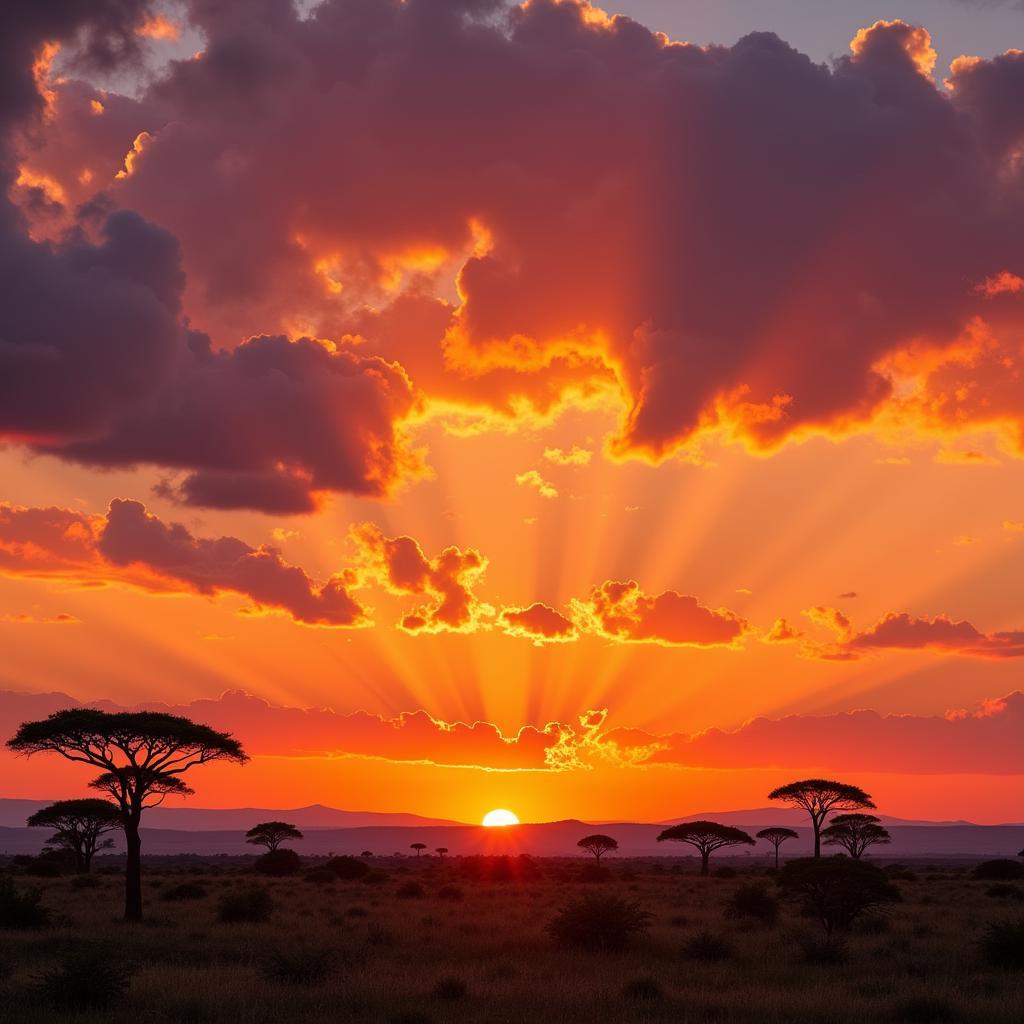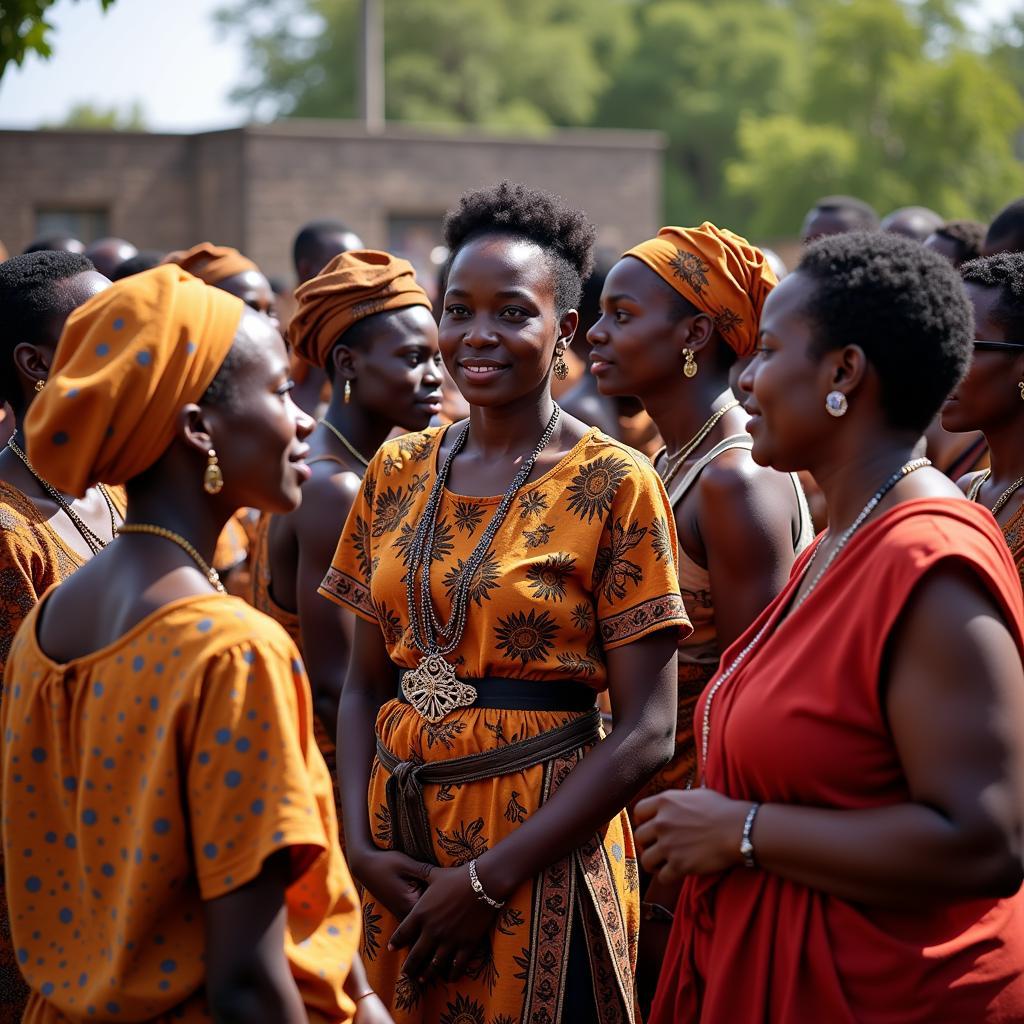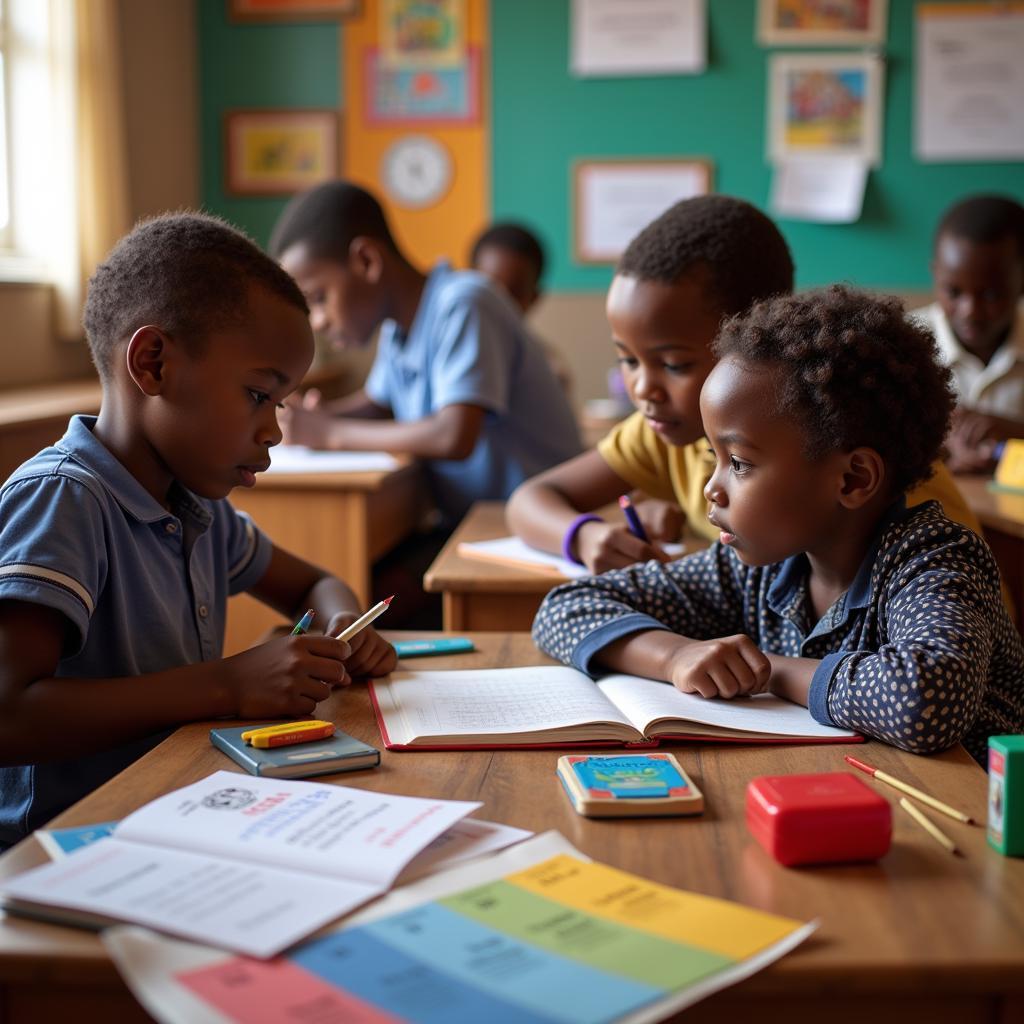Exploring the World of African Animal Games
African Animal Games offer a fascinating glimpse into the rich cultural heritage of the continent. From traditional board games to children’s play, animals play a significant role in entertainment and education across Africa. These games often reflect the diverse wildlife, beliefs, and values of the people who create and play them. Let’s delve into the captivating world of African animal games and discover their unique stories. If you’re interested in other aspects of African culture, you might find our article on an African animal chess set insightful.
The Significance of Animals in African Culture
Animals hold a prominent place in African mythology, folklore, and spiritual beliefs. They are often seen as symbols of power, wisdom, or cunning. This reverence for animals naturally extends to games, where they become central characters and metaphors for life lessons. Many African animal games are not simply for amusement but also serve as educational tools, teaching children about animal behavior, ecological relationships, and important cultural values. These games often incorporate storytelling, music, and dance, creating a vibrant and immersive experience.
Traditional African Animal Games: A Window into the Past
For generations, African communities have enjoyed a variety of traditional board games that feature animal pieces or themes. One notable example is the Mancala family of games, played with small stones or seeds in a board with several pits. While the pieces themselves are not animal representations, the strategies and tactics often mirror animal behaviors, such as hunting, gathering, and territorial defense. These games are not only entertaining but also sharpen cognitive skills and promote strategic thinking.
Another intriguing game is the Bao game, popular in East Africa, which involves intricate moves and captures, often likened to the strategic movements of animals in the wild. These traditional games are an important part of social gatherings and community events, fostering connections and strengthening bonds across generations.
Children’s Play and Animal Mimicry
Beyond structured board games, children across Africa engage in imaginative play that often involves mimicking animal movements and sounds. These games not only provide entertainment but also help children develop physical coordination, communication skills, and an understanding of the natural world. Children might imitate the graceful stride of a giraffe, the powerful pounce of a lion, or the playful chattering of monkeys. Check out our post on African cute baby boys and girl with toys for more insights into children’s play.
Such play often incorporates songs, rhymes, and storytelling, further enriching the experience and transmitting cultural knowledge. For example, children might sing songs about the cunning of the spider or the wisdom of the elephant, reinforcing cultural values and beliefs.
Modern Adaptations of African Animal Games
In recent times, there has been a growing interest in preserving and promoting traditional African games. Many of these games are being adapted for modern audiences, appearing in digital formats and educational materials. This resurgence helps ensure that these valuable cultural traditions continue to thrive and reach new generations. For those interested in digital adaptations, our article about an African elephant mod download for GTA SA PC might be of interest.
What are some examples of African animal-themed board games?
While many traditional games use strategies reminiscent of animal behavior, some directly incorporate animal themes, such as versions of Mancala with animal-shaped playing pieces.
How do African animal games contribute to education?
These games teach children about animal behavior, ecological relationships, and cultural values while improving cognitive skills and strategic thinking.
What is the cultural significance of animals in African games?
Animals symbolize power, wisdom, and cunning in African cultures, reflected in games where they become central characters and metaphors for life lessons.
How are African animal games being preserved for future generations?
Efforts include adapting traditional games for modern audiences, creating digital versions, and incorporating them into educational materials.
What are some common animal characters found in African children’s games?
Common characters include lions, giraffes, elephants, monkeys, and spiders, each representing different values or behaviors.
Conclusion
African animal games are a vibrant tapestry of cultural expression, entertainment, and education. They offer a unique window into the rich traditions and beliefs of diverse communities across the continent. From ancient board games to children’s play, the presence of animals enriches these experiences, teaching valuable lessons and fostering a deep connection with the natural world. Explore the world of African animal games and discover the fascinating stories they tell. And if you’re looking for unique sounds to enhance your gaming experience, consider exploring African drum sound effects.
FAQ
- What are some popular African animal games? Mancala variations, Bao, and various children’s games involving animal mimicry.
- Where can I learn more about African animal games? Museums, cultural centers, and online resources dedicated to African culture.
- Are there any online versions of African animal games? Yes, some traditional games have been adapted for digital platforms.
- How can I support the preservation of African animal games? Share information about these games, support cultural organizations, and encourage their inclusion in educational programs.
- What are the benefits of playing African animal games? Improved cognitive skills, strategic thinking, cultural understanding, and appreciation for nature.
If you need further assistance or information, don’t hesitate to contact us. Call us at +255768904061, email us at [email protected], or visit us at Mbarali DC Mawindi, Kangaga, Tanzania. Our customer service team is available 24/7. We also have articles on interesting topics like the African dog that doesn’t bark.


